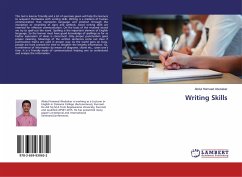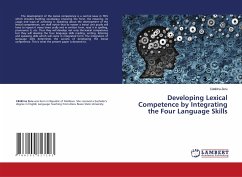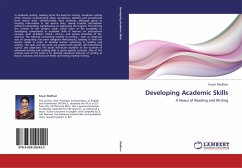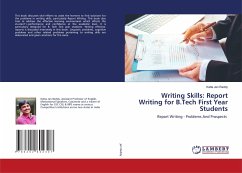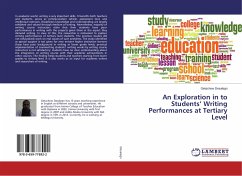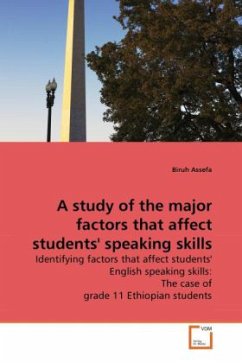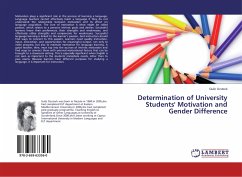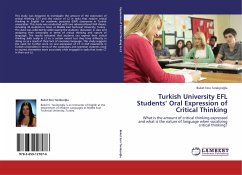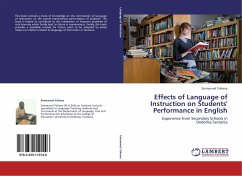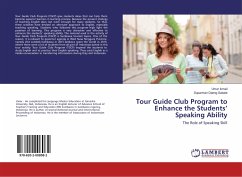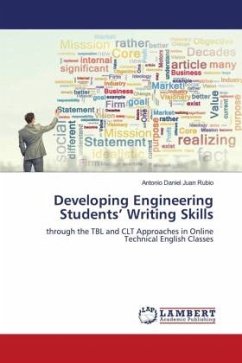
Developing Engineering Students' Writing Skills
through the TBL and CLT Approaches in Online Technical English Classes
Versandkostenfrei!
Versandfertig in 6-10 Tagen
29,99 €
inkl. MwSt.

PAYBACK Punkte
15 °P sammeln!
This research has been carried out to develop engineering students' writing skills in Technical English classes at a Spanish online university. Most of the students are young people whose age range is from 18 to 24 years and some others are adults. The development of the writing skills will be based on the application of the Communicative Language Teaching approach (CLT) and the Task-Based Language teaching approach in online classes. The former develops the learner's competence to communicate in the target language with an enhanced focus on real-life situations whereas the latter is an approa...
This research has been carried out to develop engineering students' writing skills in Technical English classes at a Spanish online university. Most of the students are young people whose age range is from 18 to 24 years and some others are adults. The development of the writing skills will be based on the application of the Communicative Language Teaching approach (CLT) and the Task-Based Language teaching approach in online classes. The former develops the learner's competence to communicate in the target language with an enhanced focus on real-life situations whereas the latter is an approach of sequencing activities in which the learner solves a task that involves an authentic use of language, rather than completing simple language questions about grammar or vocabulary.Both approaches will enhance the learning process and the acquisition of the foreign language in an efficient way. Finally, through digital educational tools such as Classroom and Kahoot, students will be more confident and accurate when writing a well-structured essay according to the basic standards of written Technical English in online classes.



